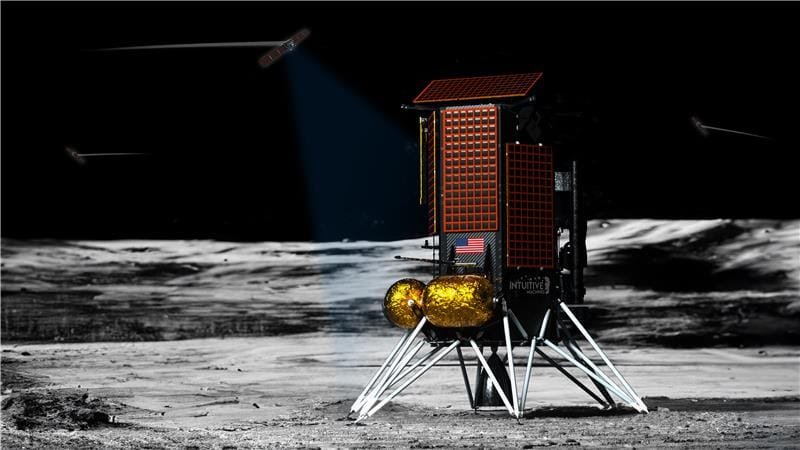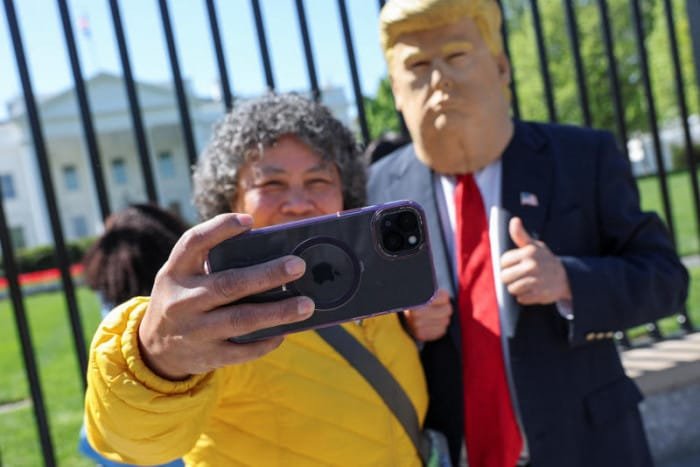Trump’s Bold Stance on Tariffs: ‘100% Confident’ in Shaping a New Deal with the EU!

Trump’s Bold Stance on Tariffs: ‘100% Confident’ in Shaping a New Deal with the EU!
In the ever-evolving landscape of international trade, former U.S. President Donald Trump’s recent declarations about tariffs and negotiations with the European Union (EU) have ignited a firestorm of discussion among economists, policymakers, and the general public. Positioned at the intersection of diplomacy and economic strategy, Trump’s statements, particularly his assertion of being “100% confident” in developing a favorable trade deal with the EU, have raised eyebrows and provoked a flurry of opinions. In this article, we will delve deeply into the ramifications of Trump’s tariff policies, offering unique insights and analysis while highlighting the value of informed dialogue on this complex topic.
The Context of Trump’s Stance on Tariffs
To understand the significance of Trump’s rhetoric regarding tariffs and negotiations with the EU, we must first consider the geopolitical and economic context. Tariffs have long been a contentious issue, affecting everything from consumer prices to foreign relations. Under Trump’s administration, we witnessed a paradigm shift—his commitment to “America First” principles meant not just a focus on the domestic economy but an aggressive approach towards trade partners.
Unique Features of Trump’s Tariff Policy:
- America First Trade Doctrine: This policy prioritizes American manufacturing by imposing tariffs on imports to protect local jobs.
- Reciprocal Trade Initiatives: Trump favored deals that would leverage tariff reductions in exchange for equal or greater concessions from trade partners.
- Impact of Social Media: Trump’s use of Twitter to announce trade strategies has dramatically shifted the dynamics of global economic discussions.
Trump’s tariffs were initially aimed primarily at China but extended to various sectors, including steel and aluminum imports from the EU. This prompted a series of retaliatory tariffs from EU nations, sparking fears of a trade war and economic instability across the Atlantic. As tensions simmered, an opportunity for negotiation emerged, and Trump’s confidence in securing a new trade deal suggests he believes that cooler heads may prevail.
The Benefits of Tariff Adjustments
A comprehensive trade negotiation serves as more than just a transactional exchange of goods; it aims to foster long-term relationships that can yield significant benefits for both parties involved. Trump’s self-assured posture highlights an understanding of the potential advantages that might arise from revisiting and possibly restructuring existing trade arrangements.
Advantages might include:
- Enhanced Market Access: A new deal could potentially increase American exports to the EU, allowing U.S. businesses to tap into lucrative European markets.
- Job Creation: By revitalizing trade relations, jobs could be protected or even created in key sectors such as manufacturing and agriculture.
- Innovation and Collaboration: A more open trading environment encourages collaborative innovation efforts, leading to advancements in technology and sustainable practices.
A New Perspective on Trade and Diplomacy
The opportunity for negotiation represents not just a potential resolution to ongoing tensions but also a fresh perspective on trade diplomacy itself. Traditionally viewed through the lens of economic gain, negotiations can also transform into platforms for cultural exchange and collaborative growth.
The comprehensive approach that Trump seems to advocate could pave the way for a more robust partnership between the U.S. and the EU—one that transcends mere economic calculations and delves into mutual respect and shared goals.
Expert Insights and Analysis
To effectively analyze Trump’s tariff strategies and their implications, it is beneficial to consult with trade experts and economists who offer varied perspectives on this complex issue.
Dr. Emily Greenfield, an economic analyst specializing in trade policy, notes: “Trump’s approach has always been straightforward—he believes that leveraging tariffs will promote domestic production. However, we must consider that global markets are interconnected. The ripple effects of tariffs can lead to diminished international relations and broader economic consequences.”
This reflective perspective reinforces the idea that while immediate economic protectionism may serve short-term goals, the long-term impacts on diplomatic relations can be dire if not navigated carefully.
The Landscape of Trade Relations
The evolving dynamics of international trade necessitate an understanding not just of tariffs but also of the broader landscape in which these negotiations take place. Here are some fundamental points to consider:
- Global Interdependence: As countries become more intertwined economically, isolationist policies can have backlash effects—creating economic stress both domestically and internationally.
- Technological Advancements: Advances in communication and technology have drastically changed the way trade operates. These need to be embraced rather than resisted by policymakers.
- Environmental Considerations: Modern trade negotiations increasingly factor in environmental protection and sustainability, leading to discussions about responsible sourcing and production practices.
To emphasize these points further, we recommend reading related in-depth analyses that can offer deeper insights into trade dynamics and their implications for domestic policy, such as analysis from The Brookings Institution and reports published by the Peterson Institute.
Looking Forward: What a New Deal Could Mean
Should negotiations with the EU result in a new deal, what should citizens and policymakers expect? Here are a few projections to consider:
- Stabilized Economic Conditions: A successful agreement may lead to stabilized markets in both regions, reducing the risk of further retaliatory measures.
- Increased Trade Volume: A reduction in tariffs could significantly boost trade volumes, rejuvenating sectors that previously suffered from high tariffs.
- Potential for Political Cooperation: As trade agreements foster economic cooperation, they may also encourage political collaboration on broader global issues—such as climate change and security.
Internal and External Resources for Further Reading
To stay updated on developments regarding Trump’s tariff policies and trade negotiations with the EU, consider exploring the following resources:
- Internal Links:
- For further insights on global trade relations, visit BizTechLive’s section on Trade and Economics.
- Keep abreast of policy changes at BizTechLive News.
- External Links:
- For expert opinions on trade impacts, visit The Wall Street Journal for their analysis on the economic ramifications of tariffs.
- Further information regarding U.S.-EU relations can be found at the U.S. Trade Representative.
Conclusion
Ultimately, Trump’s unyielding confidence in negotiating a new trade deal with the EU is both a bold and nuanced position. Exploring the advantages and drawbacks through a comprehensive lens reveals the multifaceted nature of trade agreements and their potential in shaping international relations. As these discussions progress, each stakeholder must focus on the possibilities for mutual growth, economic stability, and collaborative diplomacy, striving for a trading environment that values not only profits but also partnerships.
In anticipation of how these negotiations unfold, we encourage readers to remain engaged, informed, and proactive in understanding the shifting tides of global trade policies. The tapestry of international relations is intricate and continually being woven, with each decision contributing to the overarching narrative that ultimately shapes our global economy.







